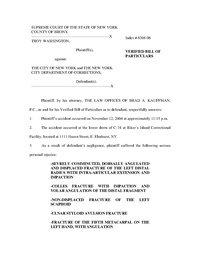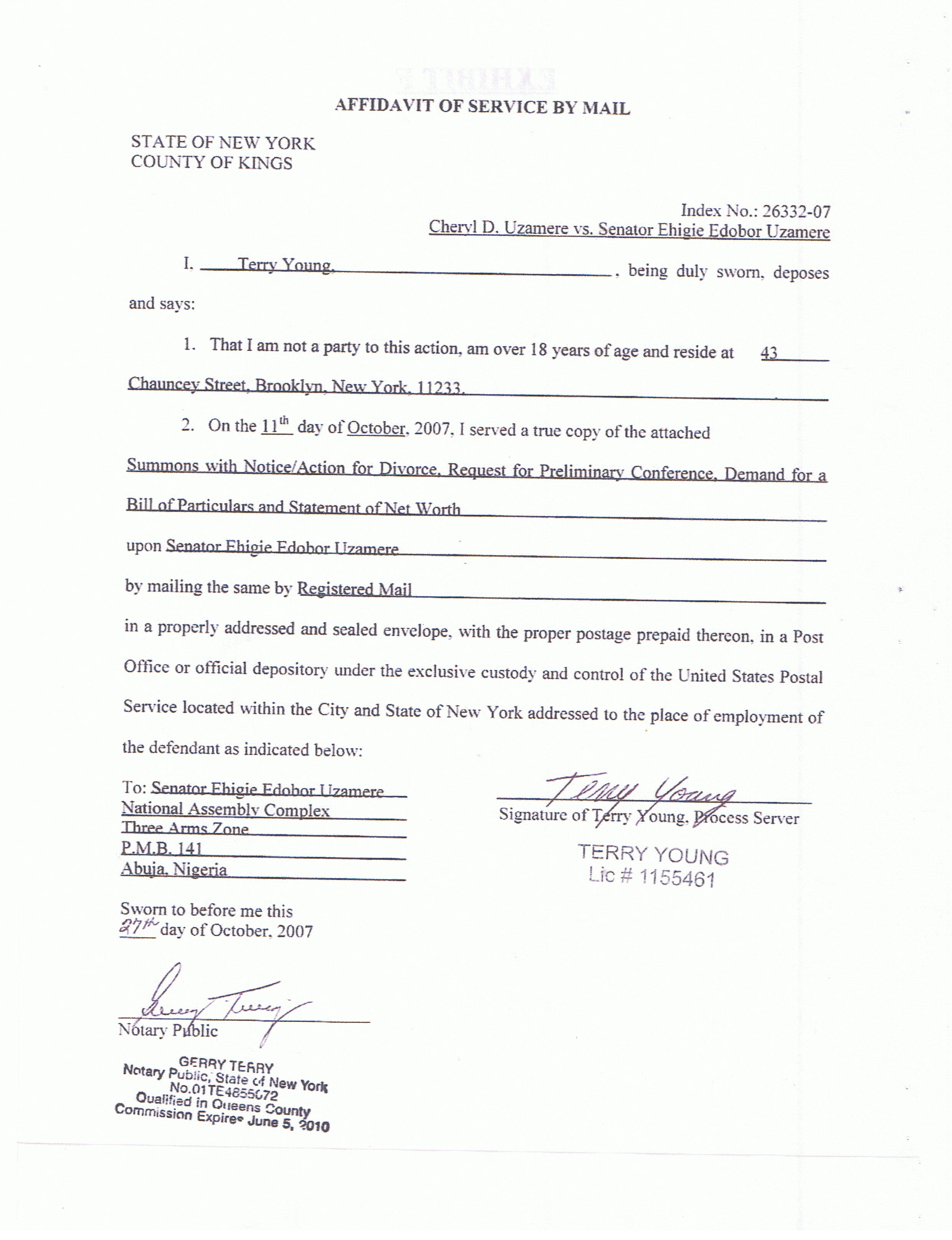

They want to know what specific injuries you have suffered as a result of the alleged wrongdoing. They want to know what the theory of liability is. What is it that their client did or did not do that you believe caused harm? They want to know specifics. They want to know what the exact claims of negligence or medical malpractice were. Some of the questions they want answered including why you believe something was done wrong. Your attorney must then answer each of the questions that they pose in this document known as a verified bill particulars. The attorney representing the people you have sued will send back a detailed list of questions and demands seeking answers. The people you are suing are then required to answer the allegations in the complaint. Your lawsuit is started with certain documents known as a summons and complaint. Your attorney is required to prepare a detailed set of documents known as a bill of particulars after the lawsuit has started. When I say “you” I really mean your lawyer.
#New york bill of particulars free
To schedule a free consultation, call us at 31.When you bring a lawsuit in New York seeking compensation for your injuries, you as the “plaintiff” are required to itemize in detail the allegations against the people you are suing. At DeFrancisco & Falgiatano, LLP Personal Injury Lawyers, we help those who have been hurt or lost a loved one due to a medical provider’s breach of the standard of care. Syracuse medical malpractice cases need adequate time for investigation and preparation prior to filing suit. If you think that you or a member of your family may have a possible claim for medical negligence, you should speak to an attorney as soon as possible. Need Advice About a Possible Syracuse Medical Malpractice Case The appellate court also agreed with the lower court’s denial of the plaintiff’s motion for leave to amend her supplemental bill of particulars. Thus, the appellate tribunal affirmed the lower court’s denial of the plaintiff’s motion to impose sanctions. Because the plaintiff had not made a prima facie showing with regard to the allegedly missing piece of evidence, the court held that a “missing document” charge was inappropriate. In the case at bar, the court found that the plaintiff had not established that any of the defendants against whom sanctions were sought were the last party to possess the note before it went missing. The moving party must also show that the document in question is in the control of the opponent against whom the sanctions are sought. The court then observed that a party who seeks sanctions such as those requested by the plaintiff must show several things in order to prevail, including destruction of the evidence in question with a culpable state of mind. This includes a request for a sanction of directing an adverse inference at trial.
#New york bill of particulars trial
While a trial court’s pre-trial rulings concerning a jury charge are not usually appealable in that they are “advisory opinions,” a trial court’s order regarding a motion to impose sanctions for spoliation of evidence is appealable.

The Supreme Court of the State of New York Appellate Division, Second Judicial Department, began by stating that, contrary to one of the defendants’ argument, the trial court’s denial of the plaintiff’s motion for sanctions was an appealable order. The court also denied a separate motion by the plaintiff for leave to amend her supplemental bill of particulars. The trial court denied the plaintiff’s request for an adverse inference charge to be given at trial. The defendants did not produce this document, and the plaintiff filed a motion to impose sanctions for spoliation of evidence.

According to the plaintiff’s complaint, which was filed in the Supreme Court of Kings County, New York, the defendants’ negligence was the cause of her decedent’s untimely death.ĭuring the discovery phase of the litigation, the plaintiff requested that the defendants produce a certain note, which was allegedly authored by a surgeon. In a recent case, the plaintiff was a woman who filed suit against the defendants, a hospital, a dialysis clinic, and others, seeking damages for medical malpractice and wrongful death. Oftentimes, the plaintiff must obtain much of the evidence of his or her claim from one or more of the defendants against whom he or she has filed suit.Īcknowledging that a defendant may have an incentive to hide or destroy evidence in order to avoid a finding of liability, New York law gives trial courts the authority to impose harsh sanctions for spoliation of evidence. The plaintiff in a Syracuse medical malpractice case has the burden of proving each and every element of his or her case.


 0 kommentar(er)
0 kommentar(er)
